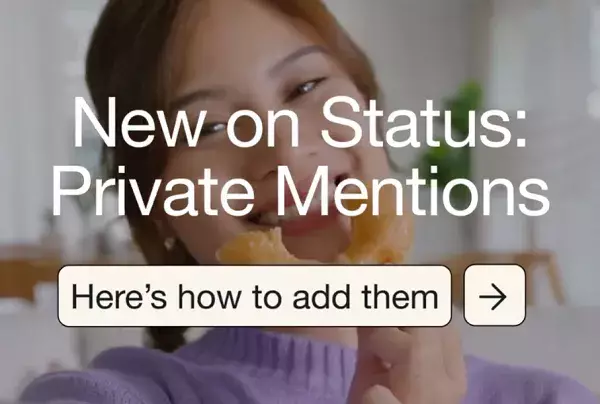WhatsApp, a staple in the world of instant messaging, continually seeks to enhance user experience and facilitate deeper connections among users. One of the notable features it offers is WhatsApp Status, which mirrors the widely adopted Stories format popularized by social media giants like Instagram. Although WhatsApp Status hasn’t gained the same level of traction in user engagement as its Instagram counterpart, its utility as a temporary storytelling medium is undeniable. Users can upload photos and videos that vanish after 24 hours, creating a sense of urgency and exclusivity. Recently, WhatsApp has introduced a new feature known as “Private Mentions,” which aims to rejuvenate interaction within Status updates.
The newly launched Private Mentions feature allows users to tag specific individuals in their Status updates, effectively drawing attention to their posts. When a user publishes a Status that includes mentions, those tagged will receive a notification, linking them directly to that specific update. This notification does not languish in the public view of the Status itself; rather, it quietly alerts tagged individuals through their inbox, maintaining the integrity of the Status content. Users can mention up to five others in one go, and intriguingly, this feature is not limited to one’s contacts—any WhatsApp user can mention another, broadening the scope for engagement.
This functionality marks a significant shift in how users can interact with their audience. Instead of waiting passively for views, users now have the ability to actively involve others, which could potentially spark conversations and interactions. Furthermore, tagged users gain access to the Status update even if they weren’t initially included in the audience, making it an effective tool for extending the reach of posts.
While the introduction of Private Mentions could stimulate engagement and increase visibility, it’s crucial to recognize potential drawbacks. Regular notifications could lead to oversaturation, where users feel bombarded by constant mentions and updates. Such an experience may ultimately detract from the enjoyment of the platform and prompt users to disengage. It’s essential for users to strike a balance—using the feature judiciously can yield better results compared to overwhelming audiences with frequent notifications.
Brands and influencers may particularly benefit from this new feature, as it offers them a way to directly engage with their followers and encourage resharing of their content. Tagging loyal customers or significant followers could foster a sense of community and boost loyalty. However, it remains to be seen how this feature will influence general user behavior over time. Brands and marketers should consider experimenting with Private Mentions to gauge their effectiveness in reaching and engaging audiences without crossing the threshold into annoyance.
WhatsApp’s rollout of Private Mentions reflects the platform’s commitment to evolving and expanding the ways in which users communicate with each other. This new feature presents opportunities for increased interaction and deeper connections, bridging the gap between personal updates and audience engagement. However, users must navigate this tool thoughtfully to avoid the pitfalls of overuse. As with any new feature, the true impact of Private Mentions will reveal itself in user behavior and platform dynamics over time, marking yet another chapter in WhatsApp’s ongoing development.

